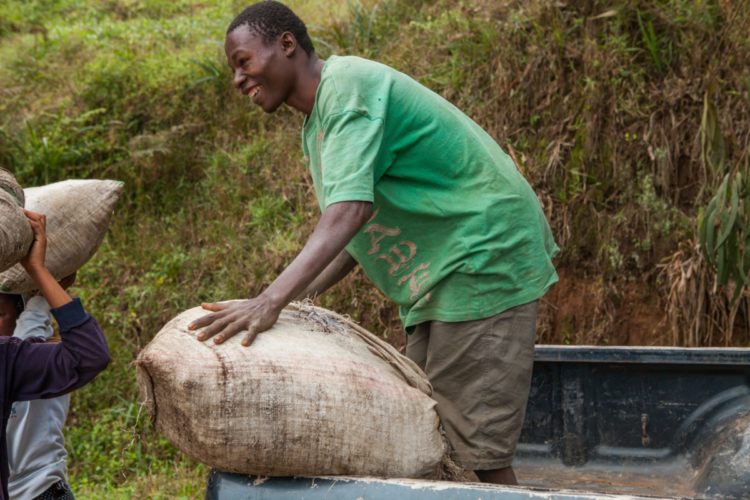After three years of implementing the UNDFF, co-organized by FAO-IFAD, the UN Decade of Family Farming 2019−2028 (UNDFF) hosted its First Global Forum of the UN Decade of Family Farming 2019-20128 (UNDFF) from 19 to 22 September 2022. The forum served as a platform for sharing lessons, experiences, challenges, and outcomes of the UNDFF implementation across regions that will guide and shape the UNDFF agenda in years to come.
Day 1 – 19 September 2022
The forum began with the High-Level Opening Session, which marked an important momentum to strengthen the commitment of governments, family farmers’ organizations and UN agencies to develop public policies and investments to support family farming. The Opening Session emphasized that family farmers are the foundation of food security and are vital to delivering what we want to achieve: food systems that produce enough healthy food that brings economic benefits and development to rural people and their territories, safeguarding the environment.
While Mr QU Dongyu, Director-General of FAO, highlighted that ‘family farmers need to be at the centre of efforts to transform agri-food systems if we are to make real progress towards ending hunger, Mr Alvaro Lario, President-elect of IFAD, called on all to inspire countries to develop progressive policies and make targeted investments to support family farming. H.E. Csaba Kőrösi, President of the United Nations General Assembly, added ‘we must turn our rhetoric into action and must work to implement policy and legal safeguards to guarantee the survival of family farms, along with ‘coherent, cross-sectoral policies, management paths and technology options for all, especially for family and smallholder farmers.
The 1st Session of the Forum on developing an enabling policy environment to strengthen family farming presented successful experiences of constructing an enabling environment for family farming from regional, national and local perspectives and highlighted the need to define family farming well at the national level to better target public policies.
Day 2 – 20 September 2022
The 2nd session of the forum brought experiences and policy initiatives from around the world, focused on supporting youth and ensuring the generational sustainability of family farming, highlighting the importance of intra and inter-generational knowledge exchange to foster innovation and guarantee the future of sustainable agri-food systems.
The 3rd session focused on promoting gender equity in family farming and the leadership role of rural women, with interventions and experiences highlighting the essential contribution of women to agriculture and a call for transformative actions to incentivize active engagement and the leadership and socio-economic inclusion of women for ending hunger and for sustainable and resilient agri-food systems.
Finally, the 4th session explored, through different experiences, the fundamental importance of strengthening organizational capabilities and technical expertise of family farmer’s organizations and cooperatives, to bolster their collective action, economic inclusion and participation in policy processes.
On behalf of the communication for development regional initiatives in Africa (YenKasa Africa), Asia (ComDev Asia) and Latin America (Onda Rural), Gissela Davila, from CIESPAL, presented how the recommendations to enhance rural communication services for family farmer’s organizations.
Day 3- September 21, 2022
The 5th session brought practical and policy initiatives from Chile, Madagascar, Lebanon and the Dominican Republic, illustrating different aspects and necessary steps towards improving socio-economic inclusion, resilience and well-being of family farmers. The session highlighted the importance of expanding social protection systems and securing appropriate financial instruments for family farming and their communities. At the same time, it strengthens collective action leading to effective and inclusive public policies.
Session 6 focused on promoting the sustainability of family farming for climate-resilient food systems, with experiences related to sanitary regulations and animal health policy issues and traditional, resilient climate crops, highlighting the increasing vulnerability of pastoralists and livestock keepers caused by their restricted mobility due to climate change.
Finally, the 7th session concluded the technical discussions by emphasizing the need to strengthen the multidimensionality of family farming further. Speakers from Spain, Colombia, Nicaragua and India demonstrated via diverse examples that traditional knowledge does not contradict innovation, but in fact, they complement each other. The session underlined the urgent need to interconnect and integrate different policy areas to strengthen the multidimensional contribution of family farming to agri-food systems.
Day 4 – 22 September 2022
The First Global Forum of the UN Decade of Family Farming 2019-20128 (UNDFF) ended. The event fostered an extensive sharing of experiences and good practices. In addition, it contributed to the co-development of a joined plan of action for the next period of the UNDFF implementation, intending to accelerate the transition to context-specific, diversified, resilient and sustainable agri-food systems for better production, better nutrition, a better environment, and a better life for rural communities.
The closing session highlighted the key findings and recommendations. Dr Maria Stella Tirol and Mario Acunzo conclude with a presentation on the impact of rural communication services for family farming.
For more information, read: First UNDFF Global Forum to highlight Outcomes, Experiences, and Challenges in Family Farming, 19 – 22 September 2022 and Global Forum of the UN Decade of Family Farming 2019–2028.


Comments are closed, but trackbacks and pingbacks are open.